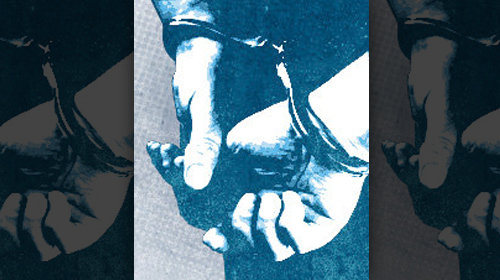
Today, the U.S. has the highest incarceration rate of any country in the world. With over 2.3 million men and women living behind bars, our imprisonment rate is the highest it’s ever been in U.S. history. And yet, our criminal justice system has failed on every count: public safety, fairness and cost-effectiveness. Across the country, the criminal justice reform conversation is heating up. Each week, we feature our some of the most exciting and relevant news in overincarceration discourse that we’ve spotted from the previous week. Check back weekly for our top picks.
Report Finds Declining Recidivism in Seven States
The Council of State Governments recently released a report that examined the 2005 and 2007 recidivism rates in seven states—Kansas, Michigan, Mississippi, Ohio, Oregon, Texas and Vermont—and found significant reductions in each state. In Michigan, the percent of individuals who committed a new crime within three years of release dropped to 33 percent in 2007, down from 40 percent in 2005. Michigan’s success, which is part of a longer downward trend from 2000 to 2008, is noteworthy for two reasons. First, it appears to demonstrate the success of the state’s 2003 reentry initiative, which includes providing community-based housing for parolees, subsidizing employers who hire them and funding community-based programming that provides transition support services. Second, it demonstrates that states can repeal mandatory minimum prison sentences for drug offenses, as Michigan did in the early 2000s, and still see declines in crime and recidivism.
Report Examines the Effects of Recent Criminal Justice Reforms
On a related note, Vera recently released a report that examines whether recent policy changes have produced the expected shifts in population and spending from prisons to community corrections between 2006 and 2010. The report found that several states—such as Michigan, Rhode Island, South Carolina, Virginia, and Wisconsin—have successfully implemented policies that reduce both prison populations and spending. More generally, however, the study suggests that it’s too soon to understand the full effects of many policies that were implemented in the last several years.
Report Exposes Inhumane Solitary Confinement Conditions for 3,000 California Prisoners
According to Amnesty International’s new report, California is holding prisoners in extreme isolation – with no fresh air, natural light, direct human contact or programs – for years and even decades, and leaving them with little hope of ever emerging from the confinement. For more on the report, read the Los Angeles Times’ coverage.
Study Finds that Youth Offenses and Sentences Predict Little about Recidivism
A Pathways to Desistance study followed some 1,300 youths convicted of mostly felony offenses in Phoenix and Philadelphia for seven years after adjudication, and found that the nature of juvenile offenses and the severity of the sentences given to them are poor predictors of recidivism. This fact sheet summarizes the findings released so far.
Cases and Petitions to Watch in the Upcoming Supreme Court Term
The Supreme Court begins the October 2012 Term on Monday, and Ohio State law professor Doug Berman highlights a number of interesting petitions before the Court at his blog. The Court agreed this week to take Missouri v. McNeely, in which the Court will consider whether a law enforcement officer may constitutionally obtain a blood sample from a drunk driver without a warrant or the driver’s consent.
Learn more about overincarceration: Sign up for breaking news alerts, follow us on Twitter, and like us on Facebook.

